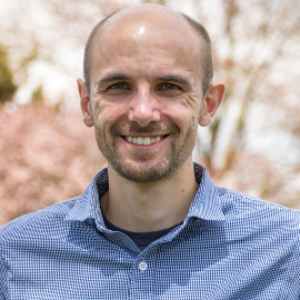Abstract:
Craniofacial encephaloceles are rare, yet highly debilitating neuroanatomical abnormalities that result from herniation of neural tissue through a bony defect and can lead to death, cognitive delay, seizures, and issues integrating socially. Consensus on the proper approach to treating craniofacial encephaloceles is confounded by the abundance of surgical techniques and parameters to consider when determining the optimal timing and course of intervention. Recent evidence suggests that a single, two-stage operation utilizing neurosurgeons to remove the encephalocele and plastic surgeons to reconstruct the surrounding tissue can be successful in many patients. The HULA procedure and endoscopic endonasal surgery using vascularized nasoseptal flaps have surfaced as less invasive and equally successful approaches to surgical correction, compared to traditional craniotomies. Some of the major concerns postoperatively include infection, CSF leakage, infringement of craniofacial development, elevated intracranial pressure, wound dehiscence, and developmental delay. Depending on the severity of encephalocele prior to surgery, the surgical approach taken, any postoperative complications, and the age of the patient, rehabilitation approaches may vary. Temporal encephaloceles can be a causative factor in drug-resistant temporal seizures and there has been success in curing patients of these seizures by temporal lobectomy and amygdalohippocampectomy The etiology of encephaloceles is still being investigated, with evidence pointing towards the Sonic Hedgehog pathway, Wnt signaling, GLI transcription factors, and G protein-coupled receptors within primary cilia as some of the major genetic regulators that can contribute to improper mesenchymal migration and neural tube closure.
Biography:
Brandon Lucke-Wold was born and raised in Colorado Springs, CO. He graduated magna cum laude with a BS in Neuroscience and distinction in honors from Baylor University. He completed his MD/PhD, Master’s in Clinical and Translational Research, and the Global Health Track at West Virginia University School of Medicine. His research focus was on traumatic brain injury, neurosurgical simulation, and stroke. At West Virginia University, he also served as a health coach for the Diabetes Prevention and Management program in Morgantown and Charleston, WV, which significantly improved health outcomes for participants. In addition to his research and public health projects, he is a co-founder of the biotechnology company Wright-Wold Scientific, the pharmaceutical company CTE cure, and was a science advocate on Capitol Hill through the Washington Fellow’s program.
He has also served as president of the WVU chapters for the American Association of Pharmaceutical Scientists, Neurosurgery Interest group, and Erlenmeyer Initiative Entrepreneur group. In addition, he has served as vice president for the graduate student neuroscience interest group, Nu Rho Psi Honor Society, and medical students for global health. He was an active member of the Gold Humanism Honor Society and Alpha Omega Alpha Honor Society. He is currently a member of the UF House Staff Council, Positive Culture Committee, Quality Improvement Committee, Board of Directors Alachua County Medical Society, and Accreditation Requirements Review Committee. He is married to Noelle Lucke-Wold and has two children. As a family, they enjoy running with their dogs, rock climbing, and traveling. In his spare time, Brandon frequently runs half marathons and 10ks together with is wife. Brandon also enjoys reading, playing piano, discussing philosophy, and playing chess. He is currently a Pgy5 neurosurgery resident at University of Florida with pursuing endovascular enfolded training and was awarded the Dempsey Cerebrovascular Research Fellowship.




